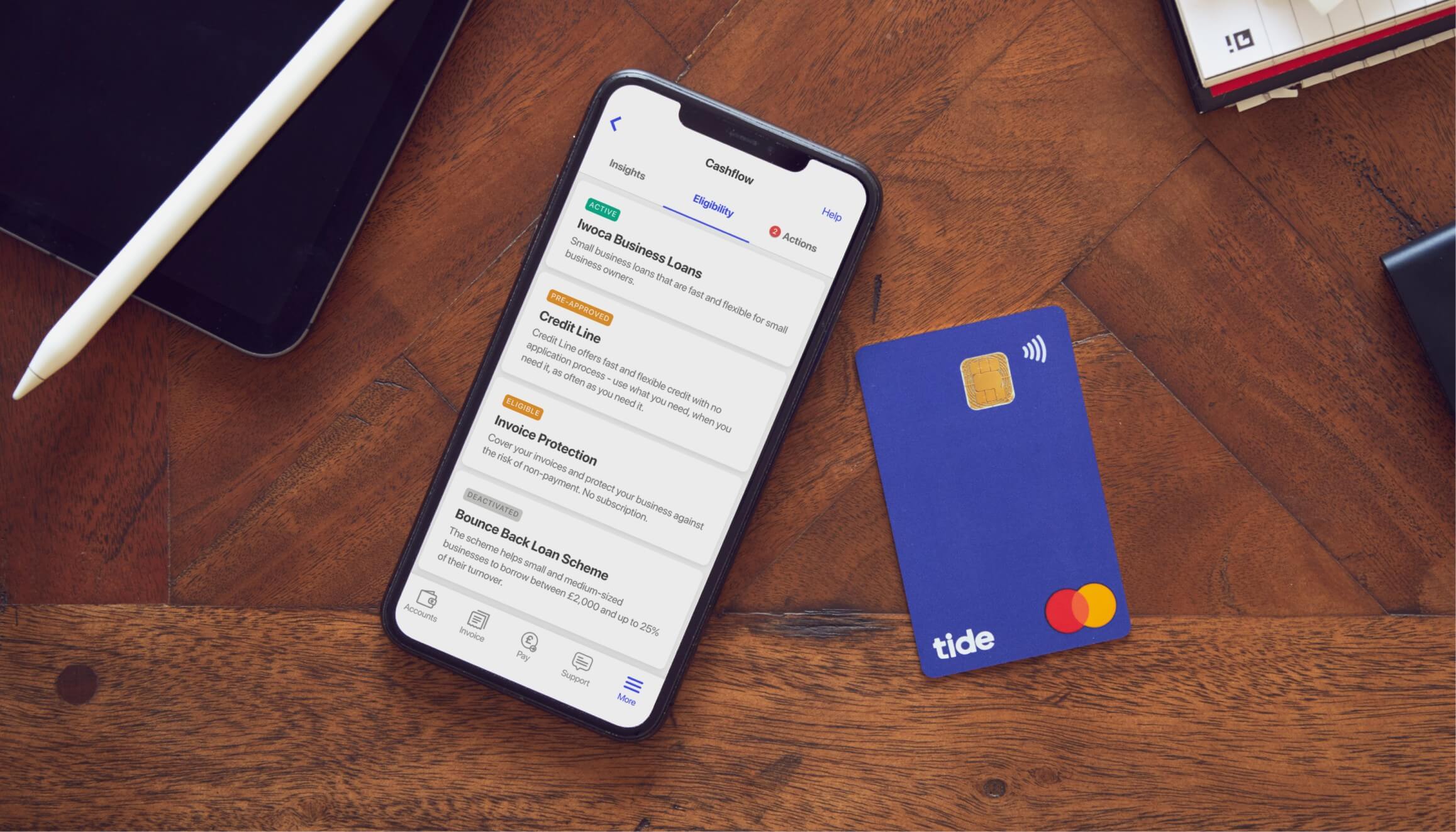
How to maintain your business credit score during a career break as a woman in business

Over 150,000 women started businesses in the UK in 2022 – that’s more than twice the amount that did in 2018¹ 👏. Whilst this is news to celebrate, female business owners across the UK continue to speak out about the challenges they face due to gender stereotyping, assumptions and preconceptions.
We spoke to Tide members of all genders in our Women in Business survey, and found that women are more than three times as likely to cite gender as a barrier to successful entrepreneurship than men.²
Securing funding is the top barrier for female business owners
More than half (54%) of women told us that a lack of access to funding held them back when they were starting up.
This funding barrier is even bigger for Black female business owners. When we spoke to Tinuke from Mums and Tea back in October 2022, she said: “As everyone knows, businesses need capital and funding to be able to start and grow and be sustainable and oftentimes it’s not that there is a lack of ideas, it’s that there are so many other things working against us in order to succeed.”
Career breaks pose a further funding risk
After returning from a career break, you might find it hard to get funding for your business. That’s because it can be more difficult to prove your credibility and experience during this time, which can lead to a weaker financial footprint and overall business credit score.
Maternity leave, elderly parental care and other caregiving roles are common reasons for a career break. Caregiving responsibilities often fall on women3 – in fact, our survey found that not receiving any help with caring responsibilities was the top roadblock to entrepreneurship for double the number of women (3.4%) compared to men (1.7%).
Tips on maintaining your business credit score during a career break
If time allows, put some steps in place before you go on a career break to reduce the negative effects it could have on your return.
Our Cash Flow Expert with over 40 years of credit management experience, including time spent as Small Business Commissioner for the UK Government and Chief Executive of the Chartered Institute of Credit Management, Philip King, gives you his advice:
1. Create a plan to maintain and improve your credit score
Check your business credit report to see what your credit score is, and catch any errors. That way, you’ll have a good starting point to plan how you’ll implement the rest of the advice in this list.
Top tip: Learn about business credit scores in more depth in our guide to everything you need to know about your business credit score (and how to improve it) 🙌
If you’re a Tide member, make use of tools such as Credit Builder as part of your plan. It’s designed to help you boost your credit score over 12 months and open your business up to future funding opportunities.
2. Use trade credit to grow your creditworthiness
Even if it’s only a small amount, buying goods and services and paying your invoices by the agreed date can help you manage your cash flow effectively, and show future lenders that you can make repayments on time.
However, try not to apply for business credit multiple times within a short period. Credit reporting agencies might see that as you struggling financially, and therefore lower your business credit score. Consider the best type of credit for your business – such as a business line of credit or an overdraft.
3. Build strong relationships with your suppliers
Make sure your key stakeholders know your value. This can go a long way in giving you access to the goods and services you need to get your business going again. Communicate honestly, deliver on your promises and be a supportive partner. You could refer new clients to your suppliers, for example.
Paying invoices on time goes beyond helping you develop good stakeholder relationships. If an unhappy supplier or lender doesn’t receive your payment by the agreed date, they might take legal action and raise a county court judgement (CCJ) or high court judgement against you. This could negatively impact your business credit score for up to 6 years – that’s extra stress you don’t want to deal with during a career break, nor upon your return.
4. Create a customer retention strategy
You might want to offer incentives, such as reduced fees, for clients that return to your business after your career break. This can save you from having to rebuild your customer base from scratch – and your time’s very important whilst you develop a new work-life balance.
Customer retention is particularly important if your business provides a service. Your clients are likely to find an alternative provider whilst you’re unavailable, and they might not return to you unless you make a conscious effort to reward their loyalty.
5. Prepare your business premises
Negotiate rent holidays or reductions for when you’re not using your commercial property. This can save you quite a lot, especially during extended career breaks.
6. Explain gaps in your career history
Unexplained absences can lead to wrong assumptions. Add context to your public records by updating your CV and LinkedIn profile as much as you’d like. LinkedIn offers the option to add the type of career break, such as full-time parenting, caregiving, health and well-being, and more.
It’s admirable that more and more women are starting businesses in spite of the gender bias that they may face, particularly in some industries. However, society as a whole needs to continue challenging gender-based bias to support women and other marginalised groups so that they can grow their businesses long-term.
Read about how we’re supporting over 100,000 female members that have joined our platform, and hear some of their business stories, in our Women in Business blog posts.
Read more about our Women In Business Programme and our latest survey results.
Sources used for this article (checked as of 10 May 2023):
¹ The Alison Rose Review of Female Entrepreneurship – 2023’s progress report
² The Tide member survey was conducted between 3 and 7 February 2023, with 1,961 total respondents
3 Women’s Progression in the Workplace
Photo by Helena Lopes on Unsplash
Please note that the information in this blog post isn’t intended to be financial advice. Please be aware that you are solely responsible for the decisions you make. You should seek independent financial advice before making any decisions about your financial future.






